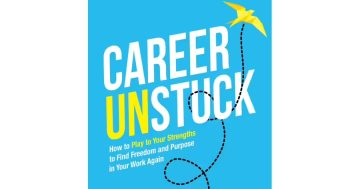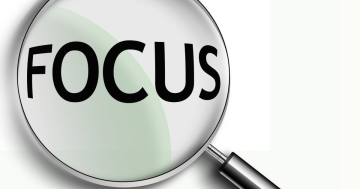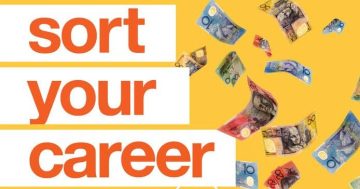Rachel Pelta* recommends that people create their own career progression plan instead of leaving their career path in the hands of someone else or to chance.
 Career development planning is crucial for job seekers and young professionals. It’s also essential for career changers, anybody mid-career, or workers who want to get a better handle on what their professional future holds.
Career development planning is crucial for job seekers and young professionals. It’s also essential for career changers, anybody mid-career, or workers who want to get a better handle on what their professional future holds.
While some companies offer professional development, not all do.
And the career development planning your company offers may not be in line with what you see in your future.
Instead of leaving your career path in the hands of someone else, or to chance, why not create a career development plan yourself? There are many benefits to taking control of your career development and, with a little bit of time, you can plot the career path you want.
What is a career development plan (and why do you need one)?
A career development plan is your professional road map.
It helps you identify where you are, where you want to go, and what you need to do to get there.
Part of the planning includes pinpointing the skills and experiences you need to execute your plan.
You’ll identify which ones you possess and which ones you lack, then figure out what you need to do to fill in the gaps.
A development plan also helps you take charge of your career advancement.
While your employer may create a career development plan for you, that plan is also designed for their needs, which may not ultimately align with your professional goals.
Building a career development plan outside of your employer allows you to take charge of your career path, so you decide where, when, and how it goes.
How to create a career development plan
FlexJobs career expert Toni Frana says, “A successful career development plan starts with research and brainstorming.
Often, people feel that the ‘research and analysis’ part of career development is unimportant.”
She continues, “People may feel that their experience is already leading them down a specific path. However, when you research different options for career growth, you may find completely new opportunities you never thought of.”
Understanding what you want to do in relation to the path you’re on now will help you craft the career development plan that takes you where you want to go.
Once you’ve researched and analysed what your career path should look like, you can figure out what steps you need to take to accomplish your goals.
Become self-aware
Being self-aware in a professional sense means cultivating a deep understanding of why you do what you do.
Developing your professional self-awareness will help you identify what motivates you, which, in turn, will help you set better short and long-term goals for yourself.
Be SMART
Once you’ve identified your motivations and what knowledge or skill gaps you have, you can start setting your career development plan goals.
This includes the big goals (become the department director) and the small ones that help you get from where you are to where you want to go (take a management class, work on my project management skills, etc.).
No matter what kind of goal you set, though, you’re more likely to achieve them when they are SMART:
- Specific
- Measurable
- Achievable
- Realistic
- Time-bound
When you set SMART goals, you’re getting specific about what you have to do and how you will know you’ve achieved the goal.
You’re also making sure the goals are something you can reasonably accomplish.
And most importantly, you’re giving yourself a deadline to help hold yourself accountable.
Though it may take more work upfront to create SMART goals, the positive impact it has in the long run is worth it.
One study found that when people use SMART goals at work, they are more engaged, feel like they perform better, and are less stressed.
Share your goals
Consider sharing your goals with someone you trust and whose opinion you value.
However, sharing your goals with a friend may not be nearly as impactful as sharing them with someone you consider higher status than yourself (someone with more prestige and respect).
Several studies found that people who share their goals with a higher-status person are more motivated to accomplish them because they don’t want the higher-status individual to think less of them.
In controlled environments, when people wrote down and shared their goal with someone they thought of as higher-status, not only did they report feeling more committed to achieving the goal, they were more likely to perform better on their task.
Leverage learning opportunities
Though you may have a natural talent or ability, you likely won’t write an award-winning novel in a month or start running on Monday and win a marathon on Friday.
Before you can accomplish your goals, you have to hone your skills and train regularly to develop your talents and abilities.
Of course, even when you train and put in the work, you’ll likely still experience setbacks.
And when that happens in your career, it’s easy to spiral into negative self-talk or even give up on your professional goals.
The best way to deal with this is to reframe setbacks as learning opportunities.
These are an opportunity to evaluate what went wrong, so the next time you’re faced with a similar situation, you’re more likely to overcome the challenge.
Be flexible
Even though you mapped out a career plan that starts at point A, ends at point Z, and includes goals B through Y, flexibility about everything from A to Z will help you find true career success.
As Frana points out, “Being too rigid with your goals can lead to disappointment.
We live in a rapidly changing world.
The pandemic reminded us that things can change very quickly, and we can’t control everything.”
Ultimately, “Being flexible and adaptable to external factors can ensure a more positive and favourable outcome to our goals and ideas, even if the end result is slightly different than what you set out to achieve,” Frana concludes.
The plan you want
Designing your career development plan will help you feel more in control of your career and allow you to make the choices that are right for you at any stage of your professional (and personal) life.
*Rachel Pelta is a Content Coordinator for FlexJobs.
This article first appeared at flexjobs.com











